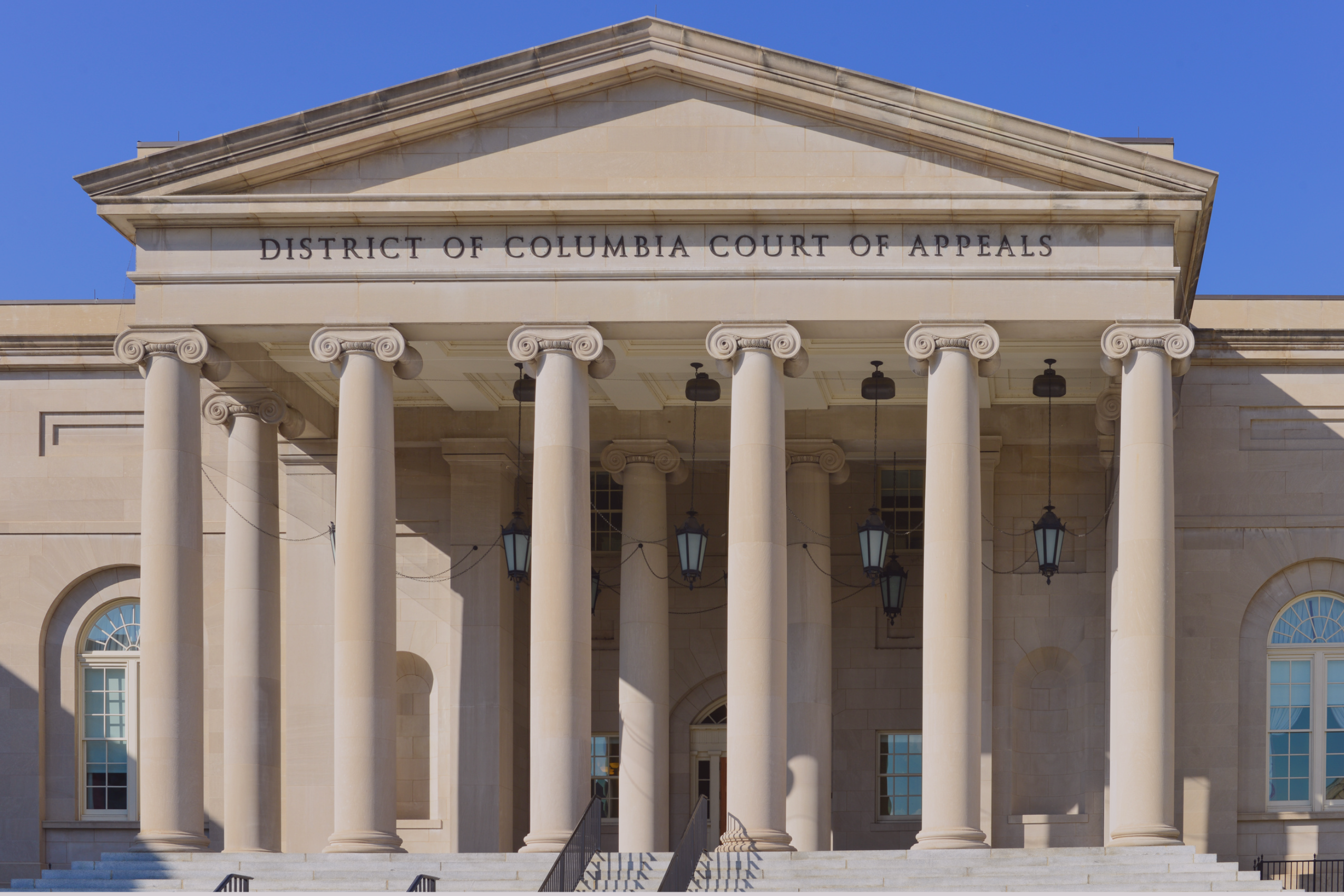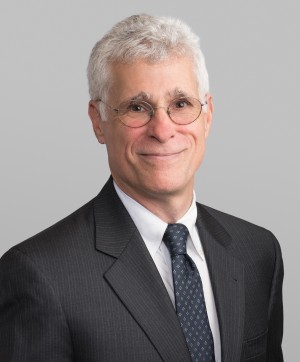Trump v. Carroll, Part I: Should the DC Court of Appeals Decide the Scope of the President’s Employment?

On January 11, the full complement of active judges of the District of Columbia’s highest court spent more than two and a half hours hearing oral argument about the District’s respondeat superior liability standard in Trump v. Carroll. The U.S. Court of Appeals for the Second Circuit certified to the DC Court of Appeals the question whether former President Trump was acting within the scope of his employment under District law when he made allegedly defamatory statements after E. Jean Carroll accused him in a magazine article of having sexually assaulted her decades earlier. It is understandable that none of the judges asked why District law should control, given that all parties to the case agreed that the District’s standard should determine whether the former president has immunity to Ms. Carroll’s suit.
The question is worth asking, though. Why should the immunity of the former President, or really of any federal employee, depend on variations in state law? Presidential immunity under Nixon v. Fitzgerald and other constitutional or common law-based official immunities are federal questions.
The immunity at issue in Trump v. Carroll arises under the Westfall Act, which Congress passed in 1988 to undo the effect of a Supreme Court decision. Under 28 U.S.C. § 2679(b)(1), a plaintiff suing a federal employee in tort is limited to the remedy against the government under the Federal Tort Claims Act (FTCA), but only if the employee was acting “in the scope of his office or employment.” Under § 2679(d), the government is substituted as the party defendant upon certification by the Attorney General that the defendant employee was acting within the scope of his office or employment. In cases where the government has not waived sovereign immunity, including claims for defamation, the substitution terminates the matter.
The Second Circuit wants the DC Court of Appeals to determine whether President Trump was acting within the scope of his employment under DC law so the Second Circuit can apply that determination to the Westfall Act. Setting aside whether the president is an employee at all, nothing in section 2679 suggests that state law standards apply.
It is true that Congress long ago decided to apply state liability standards to the federal government liability under the Federal Tort Claims Act. Under 28 U.S.C. § 2672, the government is liable “for injury or loss of property or personal injury or death caused by the negligent or wrongful act or omission of any employee of the agency while acting within the scope of his office or employment, under circumstances where the United States, if a private person, would be liable to the claimant in accordance with the law of the place where the act or omission occurred.” In applying to the United States the same “law of the place” that would apply to “a private person,” Congress preserved the uniformity of each state’s tort standards for things like car accidents involving postal carriers, and avoided having to create a body of substantive tort law for federal employees. But the question in Trump v. Carroll isn’t about those tort liability standards, but about whether the government (with its sovereign immunity to defamation claims) can set itself in former President Trump’s place, as the tort defendant in a case Ms. Carroll filed in state court alleging state law claims.
To be sure, the federal courts of appeals have long agreed that “scope of employment” for purposes of FTCA liability also depends on state law. That consensus traces to a two-sentence per curiam opinion in Williams v. United States,1 holding that the government’s liability for an accident on Guam caused by an intoxicated soldier turned on California respondeat superior law (which Congress had made applicable to the territory). The Court offered no explanation for that ruling, but since Williams in 1955, federal courts have agreed that FTCA liability depends not only on whether the employee committed a tort under the law of the state, but also on whether an employer would be liable for the employee’s conduct under state law.
That is a questionable reading of the FTCA, which textually separates scope-of-employment from the liability issues governed by state law. In 28 U.S.C. § 2674, the FTCA states: “The United States shall be liable, respecting the provisions of this title relating to tort claims, in the same manner and to the same extent as a private individual under like circumstances”—not to the same extent as a private employer. And the text of the FTCA in 28 U.S.C. § 2672 treats scope of employment as a precondition for applying state liability standards to the federal government, not as a determination to be made according to the law of the place where the tort occurred.
But even if scope of employment for purposes of FTCA liability is water under the bridge, scope of employment for purposes of Westfall Act substitution is a different matter. The substitution provisions of the Westfall Act work alongside removal from state court. The Attorney General’s certification is deemed conclusive for removal, and so removal by certification has to satisfy Article III limits on federal subject matter jurisdiction. The Supreme Court has said that whether a federal employee is acting within the scope of employment for purposes of removing the action to federal court and substituting the United States is a federal question—indeed that it must be a federal question, so that a state law tort case can come within the limited constitutional jurisdiction of a federal court under Article III.2 Nothing in the text of the Westfall Act points to state law standards to decide scope of employment for purposes of removal and substitution. And it would be strange to detach the policy behind the Westfall Act, which is to address concerns that “[t]he prospect of such [tort] liability will seriously undermine the morale and well being of Federal employees, [and] impede the ability of agencies to carry out their missions,” from the federal government’s own determination of when an employee is carrying out that mission.3
If the court allows substitution in a defamation case like Trump v. Carroll, there will never be a respondeat superior liability question to litigate; the United States is immune and the claim will be dismissed regardless of the merits. And even in a case where substitution of the United States does not mean automatic dismissal, it is not fair or doctrinally plausible that the federal government could first remove a case from state court and substitute itself as the defendant on the ground that the alleged tort was committed within the scope of employment, but then turn around and deny that it was within the scope of employment for purposes of the government’s liability. The only sensible reading of the Westfall Act is that scope of employment is a threshold jurisdictional question of federal law, not a component of the liability standard governed by state law.
Perhaps the Second Circuit’s motivation in certifying a question to the DC Court of Appeals was to nudge the District’s law in the direction of the cost-internalization approach favored by the tort law scholar who wrote the Court’s opinion. But the atypical circumstances of a defamation claim against a sitting president may not be the best vehicle for the DC Court of Appeals to revisit its general respondeat superior law. And, as Judge Calabresi acknowledged in a separate concurrence, substituting the United States for the former president would result in immunity, not cost internalization, so it is a particularly unsuitable vehicle to consider a change in District respondeat superior law for that purpose. Immunizing isn’t internalizing. Why isn’t it for Congress to decide what kind of respondeat superior standard is suited to the special context of Westfall Act substitution, rather than asking the District of Columbia to reconsider its law in a context completely unlike the cases for which it has been developed?
If the DC Court of Appeals does ask itself why District rather than federal scope-of-employment law should govern the substitution question, it may well conclude that there is no reason to apply District law to Trump v. Carroll in response to the Second Circuit’s certified question.
1 350 U.S. 857 (1955) (per curiam).
2 See Gutierrez de Martinez v. Lamagno, 515 U.S. 417, 435 (1995) (plurality); Osborn v. Haley, 549 U.S. 225, 244-45 (2007).
3 Pub. L. No. 100-694, § 2 (Nov. 18, 1988).
Information provided on InsightZS should not be considered legal advice and expressed views are those of the authors alone. Readers should seek specific legal guidance before acting in any particular circumstance.
Author(s)

David A. Reiser
Counsel
Email | +1 202.778.1854
As the regulatory and business environments in which our clients operate grow increasingly complex, we identify and offer perspectives on significant legal developments affecting businesses, organizations, and individuals. Each post aims to address timely issues and trends by evaluating impactful decisions, sharing observations of key enforcement changes, or distilling best practices drawn from experience. InsightZS also features personal interest pieces about the impact of our legal work in our communities and about associate life at Zuckerman Spaeder.
Information provided on InsightZS should not be considered legal advice and expressed views are those of the authors alone. Readers should seek specific legal guidance before acting in any particular circumstance.




